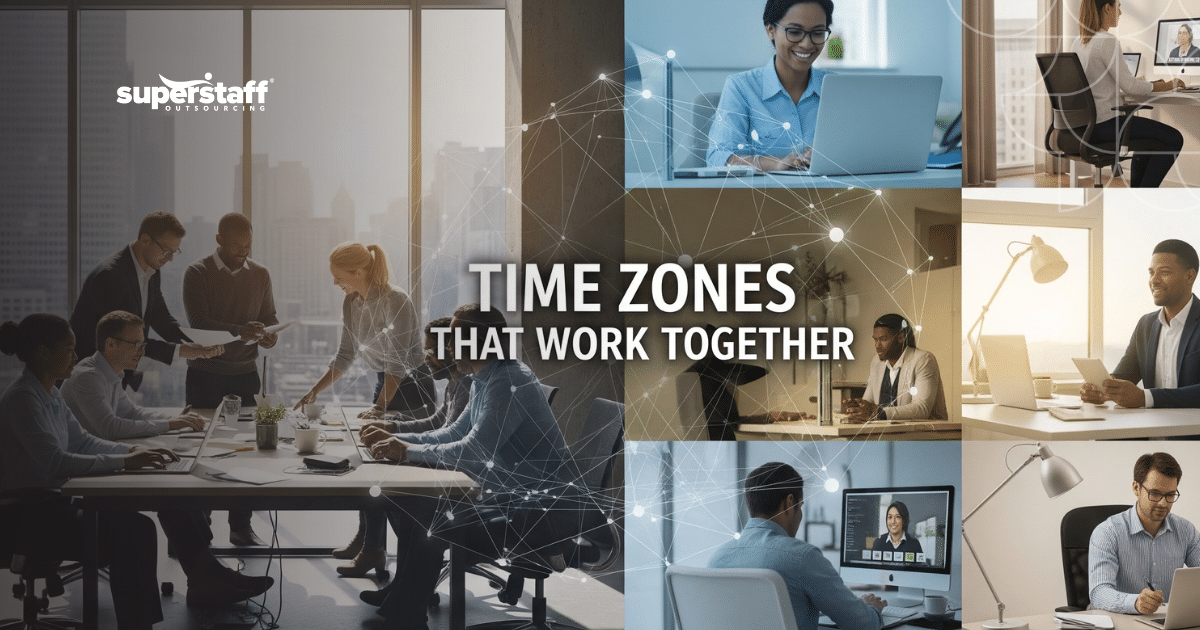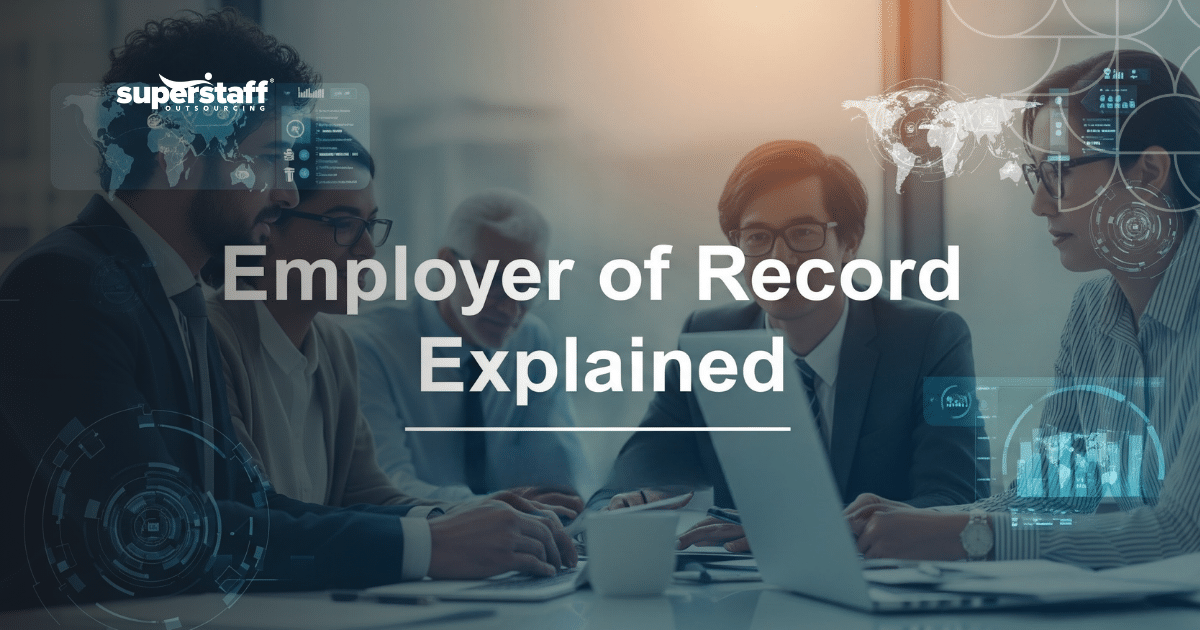
There’s one critical lesson that legal practitioners should learn from the last one year and a half: the legal industry can change overnight. COVID-19 triggered unexpected trends in the law industry, and one way to adapt is by recognizing that legal process outsourcing can help them future-proof their firms.
In this article, let’s dig deeper into different disruptors— pandemic, technology, legislation, client behavior, and culture— that impact the law profession and how legal process outsourcing providers play a crucial role in pushing law firms forward.
What Is LPO (Legal Process Outsourcing)?
A relatively new model in the delivery of legal services, legal process outsourcing involves engaging the expertise of an external contractor, such as legal process outsourcing companies, to perform various back-office and non-core functions. Legal outsourcing solutions can be onshore, nearshore, or offshore.
Why Is LPO Important?
Contracting the services of legal process outsourcing providers is an innovative and cost-efficient way to improve the way you run your practice. LPO gives you access to talents and niche expertise that your internal team lacks. It also saves your firm a significant amount of time and effort in completing repetitive tasks, an ability that is essential in surviving the cutthroat competition in the legal market.
Common Jobs Delegated to Legal Process Outsourcing Companies:
- Legal transcription
- Liaison services
- Paralegal services
- Legal research
- Record keeping
- Database maintenance
- Word processing
- Scheduling
- Data entry
Analysts predict that the legal process outsourcing market could grow to $35.9 billion by 2025. Most legal process outsourcing companies have headquarters in the United States but keep back offices in Asia Pacific as part of their international strategy.
As mentioned earlier, the model is relatively new for law firms. But, its being current gives its power to take on the evolving trends that are shaping the law industry in 2021 and beyond.
5 Law Industry Trends and Where Legal Process Outsourcing Comes In
1. A Fully Remote Law Firm Due to COVID-19 Restrictions
For the longest time, the legal industry has been known to have aversion to remote and flexible work practices. But just like with many industries, the onset of the COVID-19 pandemic left the legal sector without much choice but to embrace the remote work setup.
Overnight, lawyers from Big Law and solo practices alike found themselves giving legal advice and performing other legal functions in their makeshift offices at their homes. By April 2021, 48% of law firms were operating entirely remotely, while 12% continued to work in their offices. The others employed a hybrid approach.
While some industry leaders are preparing to return to offices by September, others consider adopting a permanent remote work arrangement because of its cost-saving benefits. Fewer real estate footprints mean less money spent on desk spaces, utilities, and other overhead expenses.
A fully remote work approach also minimizes health and operational continuity risks. Although COVID-19 affected everyone, some firms were not as severely bleeding as the others. These were the firms that had been engaging the services of legal process outsourcing companies even before the pandemic. They experienced fewer adjustment issues when they transitioned to fully remote setups during lockdowns.
2. Increased Use of Artificial Intelligence in the Legal Industry
The use of big data and analytics is another trend that is relatively new in the inherently risk-averse legal sector. But as the industry continues to evolve to cope with the increasing demand of clients, more law and legal process outsourcing firms are seeing the benefits of incorporating artificial intelligence into their processes. Some of the AI technologies influencing the field of law are as follows:
- Predictive analytics
As its name implies, this technology facilitates predicting outcomes through a combination of historical data, machine learning techniques, and algorithms. Predictive analytics can provide legal practitioners with data-driven insights that will allow them to strategize better. By analyzing trends, this AI tool assists lawyers in inferring how long a case would take, how good or bad is their chance of winning, and other relevant information.
Predictive analytics also provides data helpful in building ideal teams for specific cases or their firms. By analyzing historical data, predictive analytics can help the firm decide when and if it’s best to hire full-time partners, freelancers, or legal process outsourcing teams.
- Machine learning
Machine learning is an AI-powered application that facilitates automatic system learning to enhance efficiency and experience. Through algorithms, machines train to perform cognitive tasks without external triggers. When applied in the legal setting, this technology can boost a firm or a private practitioner’s performance and cost-effectiveness.
Many of the mundane yet essential tasks of lawyers are time-consuming. Document reviews, for instance, require long and painstaking hours from both the lawyer and the clients. Through machine learning technology, attorneys can skip the task of going through documents that have no relevance to their specific cases. The technology also allows them to complete due diligence significantly faster.
One study compared the speed and accuracy of document reviews performed manually and through machine learning. It took the participating lawyers an average of 92 minutes to review five contracts with 85% accuracy. On the other hand, the software used took 23 minutes to check the same number of documents with 94% accuracy.
- Blockchain
Among the significant reasons the legal industry is slow to adapt to modernization are data security and transparency concerns. Blockchain technology resolves these issues.
Blockchain essentially works as a decentralized and secured digital ledger shared among networks of computers. The data entered cannot be changed, tampered with, and hacked.
Utilizing blockchain in the law sector will simplify many transactional aspects between lawyers and their clients. Here are some of the ways the legal sector can benefit from blockchain technology:
- Increase transparency as records is unalterable and visible to all allowed networks.
- Promote cost-efficiency by minimizing hours spent on manual tasks.
- Enhance productivity by automating the preparation of standard contracts and other documents.
- Increase data security by eliminating the need to share information back and forth through individual emails and other databases.
- Intelligent KM
KM or Legal Knowledge Management software uses artificial intelligence to facilitate the efficient creation, sharing, usage, and management of collective information and knowledge of a firm. In an industry that relies heavily on facts and details, one cannot overlook the power of an advanced knowledge management system.
Through KM, firms can capture collective lawyers’ knowledge from prior works to produce standard forms, processes, and other templates. Lawyers also use KM to solve legal problems. As this approach is more cost-effective and time-saving, both firms and clients benefit significantly from intelligent KM.
What Is Legal Process Outsourcing’s Role in Improving Legal Operations Through Artificial Intelligence?
The delivery of legal outsourcing services relies on labor arbitrage and technology. Legal process outsourcing companies invest in the latest technologies to enhance the delivery of their services.
Some legal process outsourcing providers offer access to advanced software as part of their service packages. They may also provide IT and technical support. Leveraging on the capabilities of your legal process outsourcing partner, you not only save money but also get to implement technologies faster in your system.
3. Commitment to Diversity, Equity, and Inclusion
The long arm of globalization continues to tear down geographic boundaries in the practice of law. As technology expands firms’ client reach to a global level, the expectation to show their commitment to diversity, equity, and inclusion increases.
Employing the help of an offshore legal process outsourcing company is one great strategy to build a more diverse, equitable, and inclusive workplace. Having professionals from varying backgrounds, cultures, orientations, etc., will spark creativity and innovation. It also invites collaboration and promotes a more positive work environment, whether virtual or actual.
However, legal process outsourcing is just one step to build a diverse, equitable, and inclusive firm. After all, DE&I isn’t just measured by numbers but by actions as well. Here are some tips for creating a more diverse, equitable, and inclusive firm:
- Spearhead initiatives to educate members of your team about issues relevant to DE&I.
- Promote a culture of open communication.
- Get affiliated with organizations that champion DE&I efforts.
4. Increased Focus on Client Experience as the Main Differentiator
Law firms traditionally market themselves by how well they represent their clients. Today, besides having solid legal expertise, lawyers must set themselves apart by providing impeccable client experience.
What Is Client Experience and How Legal Outsourcing Services Enhances It?
Client experience is the overall perception of your client about your firm as a sum of every interaction they have with you, directly or indirectly. From the moment the client first finds out about your firm through your website to the final conversation after the case, every interaction is an opportunity to make a great impression.
But what are your clients looking for in their interactions with your firm? If we are to be specific, there are many. But at their core, they all can all fall under one word: empathy.
Even as technology continues to shape the practice of law, clients, above all, value authentic human connection. Unfortunately, not many law practitioners are known to be great at building relationships with their clients.
Lawyers should know that when clients seek legal services, they are usually emotionally charged. In fact, 74% of clients are angry, anxious, scared, or carry other ‘negative’ emotions early in legal proceedings.
Understanding how your clients feel, their motivations, and their needs will allow you to gain their trust and build solid relationships with them. This trait will be your most significant advantage.
Of course, legal expertise is still essential. After all, your clients came to you to help solve their legal problems. But your ability to empathize and form solid relationships with your clients will be the key differentiator that will give you a substantial edge over your competitors. Remember, people will forget what you said and did, but they will never forget how you made them feel.
Enhance the Client Experience Journey Through Legal Outsourcing Services and Other Best Practices
Once you fully understand where your clients are coming from, it will be easier to create a personalized client experience on every touchpoint. No client, even outside of legal services, wants to feel treated like a number. The critical thing to remember is to make every part of the client experience journey as personalized as possible.
Partnering with a legal outsourcing services company is a great way to enhance the client experience. It allows faster completion of back-office functions that result in speedy service, gives clients access to customer support 24/7 and helps lawyers focus on clients.
Here are more tips to help improve client experience:
- Create client persona.
A client persona is a fictional depiction of your client’s profile. To understand your client’s persona, you must do extensive data-driven research. Include as much specific client information as possible, from tangible details like demographics to intangibles like motivations. Client persona varies with every client; a probate client will have different needs from a divorce client.
Hiring the services of a legal process outsourcing team to do data entry, management, and keeping will save you or your firm much-needed time and resources in creating a client persona.
- Map out and personalize client’s touchpoints.
Once you fully understand where your clients are coming from, it will be easier to create a personalized client experience. All interactions must be maximized to provide an exceptional and personalized experience.
From website content to other marketing initiatives, every form of communication must resonate with your client on a personal level. One effective way to achieve this is to create detailed service descriptions on your website. The content should highlight not just your expertise but, more importantly, the benefits that your client can get from acquiring the specific service.
Some companies offer content writing, website development, and other related solutions apart from legal process outsourcing. You’ll save more time and money if you work with a single contractor that has expertise.
- Be responsive.
With the abundance of various forms of communication, there is no acceptable reason for lawyers not to be responsive to their clients. A good 79% of legal clients expect their lawyers to provide updates at least once a week, while 69% expect a response for their queries within the same day.
Improve your firm’s responsiveness by utilizing technologies such as chatbots to make your clients feel that you are attentive to their needs. For this to work, your firm must know what to automate and what not. Establishing clear guidelines will help you thrive in making automated communication work to your advantage.
Another practice that you can adopt is to work with a provider that offers legal outsourcing services to handle client support and other back-office tasks. Freeing your in-house team with non-core legal functions will give them more time to attend to your clients’ needs and deliver speedy results.
- Initiate post-case communication.
If you want to increase client loyalty, you need to ensure that your relationship with your clients doesn’t end once the case concludes. As simple as sending a thank-you or congratulatory email can make a difference in retaining a client.
5. New Talent and Hiring Strategies
Even before the pandemic hits, companies all over the world are already experiencing talent shortages. The multi-billion legal industry is no exception. One survey found that 58% of legal organizations are facing skill shortages. Despite this, the industry is continuously growing. As cases and clients pile up, so is the pressure for industry players to attract or retain top lawyers.
Legal outsourcing services can help address the skill gap in non-core legal functions. But what about the shortage of lawyers? To overcome this challenge, firms must understand candidates’ motivations and needs.
What Are Lawyers Looking for in a Firm (and Why Is LPO Important)?
High compensation is no longer enough to attract and retain exceptional talents. Today, lawyers and other legal professionals are looking for more value from a firm. If you want to attract the best and the brightest associates, focus on developing and highlighting the following aspects of your practice to make your firm a great place to work:
- A progressive firm culture.
Associates find firms appealing if they have a culture that genuinely promotes and supports the growth and welfare of their people. Therefore, firms must provide the support the employees need, whether training, mentorship, or feedback, to encourage them to reach their fullest potential. In short, firms must market themselves as people-focused organizations.
- Flexible and healthy work environment.
For most lawyers, work-life balance was pretty much nonexistent. The culture of stress has long been accepted as a part of the deal when entering the field. But as more millennials enter the workforce, more emphasis is given to the value of having a work-life balance and overall mental health and wellness.
According to an IWG survey, 80% of professionals would turn down an employer that didn’t offer flexibility. Another study reported that 97% of employees say a job that provides flexibility positively impacts their overall quality of life. To make working in your firm more appealing to the best lawyers, maximize opportunities to offer greater flexibility, such as remote work setup or flexitime. Take advantage of the available technologies to ensure productivity even in non-traditional formats.
Another great way to promote wellness and balance in your practice is to channel some administrative and repetitive tasks to legal process outsourcing providers. This approach will help your in-house team have more time to enhance their well-being.
- Diverse career paths.
Before, almost everyone entering the field of law aspired to complete the partnership role. Today that is no longer true. Research shows that only one in five lawyers want to be partners. Many lawyers find it less appealing with all the stress, pressure, and accountability placed on a partner’s shoulder.
Offering alternative career paths that resonate with the employees’ motivations and definition of success is one way to encourage engagement and retention. To help the lawyers figure out the best route to take, firms must invest time in providing the lawyer with continuous support, such as coaching and feedback.
Reap the Benefits Legal Process Outsourcing in the Philippines With SuperStaff
SuperStaff is a legal process outsourcing company with a fully operational center in a prime location in the Philippines—a country that is home to many top law universities and legal professionals.
From highly educated talents to insightful data, we equip law firms and solo practitioners with the solutions they need to stay ahead of their competition. Contact SuperStaff today to learn more about our legal process outsourcing expertise.






